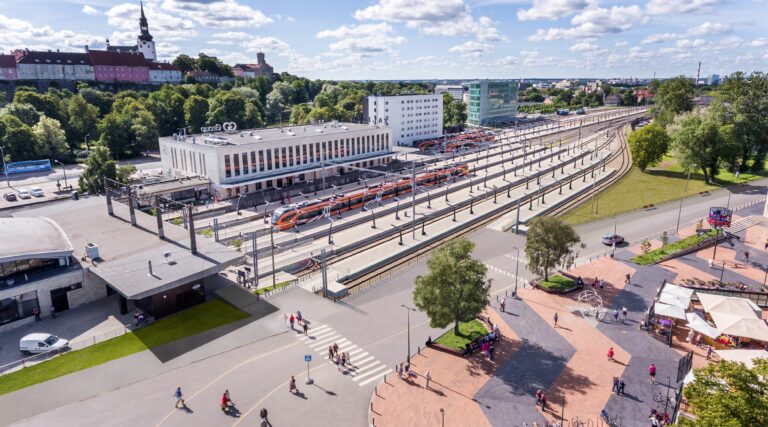Estonian Railways have initiated a highly ambitious investment plan until 2030, to take the quality of the railway infrastructure, traffic management and safety to a new level. The plan involves the renewal of the control-command and signalling systems on three sections of Estonian Railways’ (AS Eesti Raudtee) railway infrastructure and in ca. 50 stations between 2020 and 2024. To this end, a large-scale contract for the modernisation of railway control-command and signalling (CSS) systems was entered into, amounting to just over 115 million euros.
“With the procurement for CCS systems, we are looking for a partner to build one of the safest railways in Europe and our contractual partners Siemens Mobility OY and GRK Rail will help us achieve this by ensuring the conditions needed to transition to a modern CCS system. This in turn will provide the conditions for ensuring high-quality, efficient and safe rail transport for passengers as well as goods using our infrastructure,” said Erik Laidvee, Chairman of the Management Board of Estonian Railways.
The modernisation of CCS systems covers the majority of the railway sections of Estonian Railways and the renewal programme is due to go ahead in three stages. The first stage will cover the Tartu-Valga, Tapa-Tartu, Tapa-Narva and Tartu-Koidula sections. The second stage will cover the Tallinn-Tapa and Valga-Koidula sections. The agreement pertains to the first and the second stage and provide the foundation for transitioning the entire network to the European Train Control System (ERTMS / ETCS) duing the third stage.
The contract for the main CCS system lasts until 2025, and includes the design, delivery and implementation of certified CCS systems compliant with railway safety requirements, spare parts needed throughout the contract period and support and maintenance for five years. Siemens Mobility Oy is responsible for the delivery and overall management of the system, GRK Rail is responsible for the installation and maintenance of the system. During the period of use of the system, Estonian Railways can order changes to the system from the contractual partners as well as support and maintenance services as needed. “Through long-term cooperation, we can ensure that new CCS systems will be monitored with regular reviews, the railway team has acquired new competences, standardised spare parts are optimally available, preventive maintenance is planned and performed and any faults will be responded to swiftly to ensure safety and system continuity,” added Laidvee. Modernisation will also make it possible to introduce remote traffic management. The contract will include integration with the new centralised traffic management system to be implemented across the entire railway network in 2024.
“Siemens Mobility Oy has extensive experience in leading the digitalisation of railway transport and our mission is to enable clients to make trains and infrastructure more intelligent. We are glad to take part in the process of making railways safer and more seamless,” says Juha Lehtonen, CEO of Siemens Mobility Oy.
In addition to the CCS system contract, Estonian Railways are about to announce related additional procurements for the supply of various materials, on-site construction and supervisory and expert Services.
Last year, Estonian Railways started a project for the modernisation of control-command and signalling systems across the infrastructure in order to implement a new traffic management system between 2020 and 2024. The infrastructure of Estonian Railways is mostly outdated (from 1960-1980) and uses labour-intensive traffic management technologies that greatly hinder any opportunities for ensuring the continued functioning of the railway.
To carry out the project, the European Investment Bank (EIB) entered into a very favourable loan agreement with the national railway infrastructure company of Estonia for 25 years in the amount of 95 million euros and with a margin of just 0.09%. The government of Estonia is also supporting the projects and increased the share capital of Estonian Railways by 10 million euros this spring.
Source: Estonian Railways
